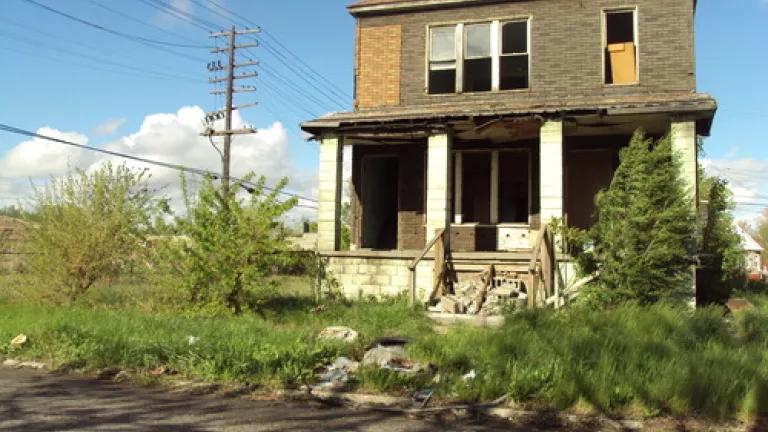
"Are we to be just a rubber stamp for the House [of Representatives]?"
Maine Senator Susan Collins shot this terse query at her Republican colleagues on the Senate Appropriations Committee at the session reporting the FY 14 Transportation, Housing and Urban Development and Related Agencies (THUD) Appropriations bill. She had worked with Washington Senator Patty Murray on the bill, S. 1243, bipartisanship (Collins is a Republican, Murray a Democrat) that was also reflected in the final vote of 21-8. 5 Republicans including Collins sided with the Democrats in favor of the bill, and they all deserve a round of applause: Senators Thad Cochran (R-MS), John Hoeven (R-ND), Mark Kirk (R-IL), Jerry Moran (R-KS), and Lisa Murkowski (R-AK).
One place I saw this confirmed was on the National Low-Income Housing Coalition's (NLIHC) web site. I'm not surprised that they are drumming up support for the Senate bill, just look at the contrast between the bills in their handy chart (pdf here). Take a look especially at the "Community Development Block Grant" line. As I've noted, this should be a popular program on both sides of the aisle. It is targeted at helping low-income communities based on an objective formula for determining who qualifies. Most of it goes to infrastructure and housing. It is a block grant, so funding is controlled locally not by the feds. This program was, after all, signed into law by Republican President Gerald Ford 40 years ago. And it provides a much-needed boost during tough economic times, faced by cities like Detroit which just declared bankruptcy.
Abandoned house in Delray, Detroit (public domain)
And yet, the House proposes slashing it back to its 1970s level, about half of S. 1243's proposed allocation. This is the biggest and clearest evidence that too many of those currently in the House have their priorities cold-heartedly wrong. And it's one of the reasons the bill was passed along party lines, unlike the Senate.
Looking at transportation we see a similar, stark story. As Transportation for America details in their own fact sheet (pdf here), the Senate's bill is superior to the House's when it comes to transportation in at least four ways. First, it funds the oversubscribed, wildly popular TIGER (Transportation Investments Generating Economic Recovery) program. This program, much of which has funded economically beneficial freight transportation projects such as this one, the track record for which is readily available on the DOT web site here, grants taxpayer dollars based on the merits and projected performance of projects, not pork barrel politics. It spurs virtuous competition between project sponsors, and so its effects are leveraged beyond grantees to the many jurisdictions that compete for the funding since they will make improvements based on feedback from DOT.
The Senate bill also includes funding to reduce the huge backlog of bridge repairs America faces, something that Transportation for America has helped publicize with spiffy analyses like this one. One of several flaws in the current transportation law, MAP-21, is the lack of dedicated funding for such repairs. While the $500 million in the Senate bill won't clear the backlog, it would help a lot and make us all safer as we ply the nation's highways.
The Senate bill also provides substantially more funding for transportation choices such as rail, as opposed to the House which proposes cutting both Amtrak and public transportation at a time when we're all getting squeezed by high gas prices and can benefit from more options (see Rob Perks' cool new study about the potential benefits of even modest changes in commuting travel, if we're afforded the choice).
All in all, the contrast between these budgets is stark. I urge you to contact your Senators and tell them to stick to their guns and vote for S. 1243 when it comes to the floor next week. Unlike the House bill, S. 1243 delivers housing and transportation options we deserve.
Let your Senators know right now by calling, tweeting, or writing a good old-fashioned letter using this template from Transportation for America.
And thanks for taking action.
